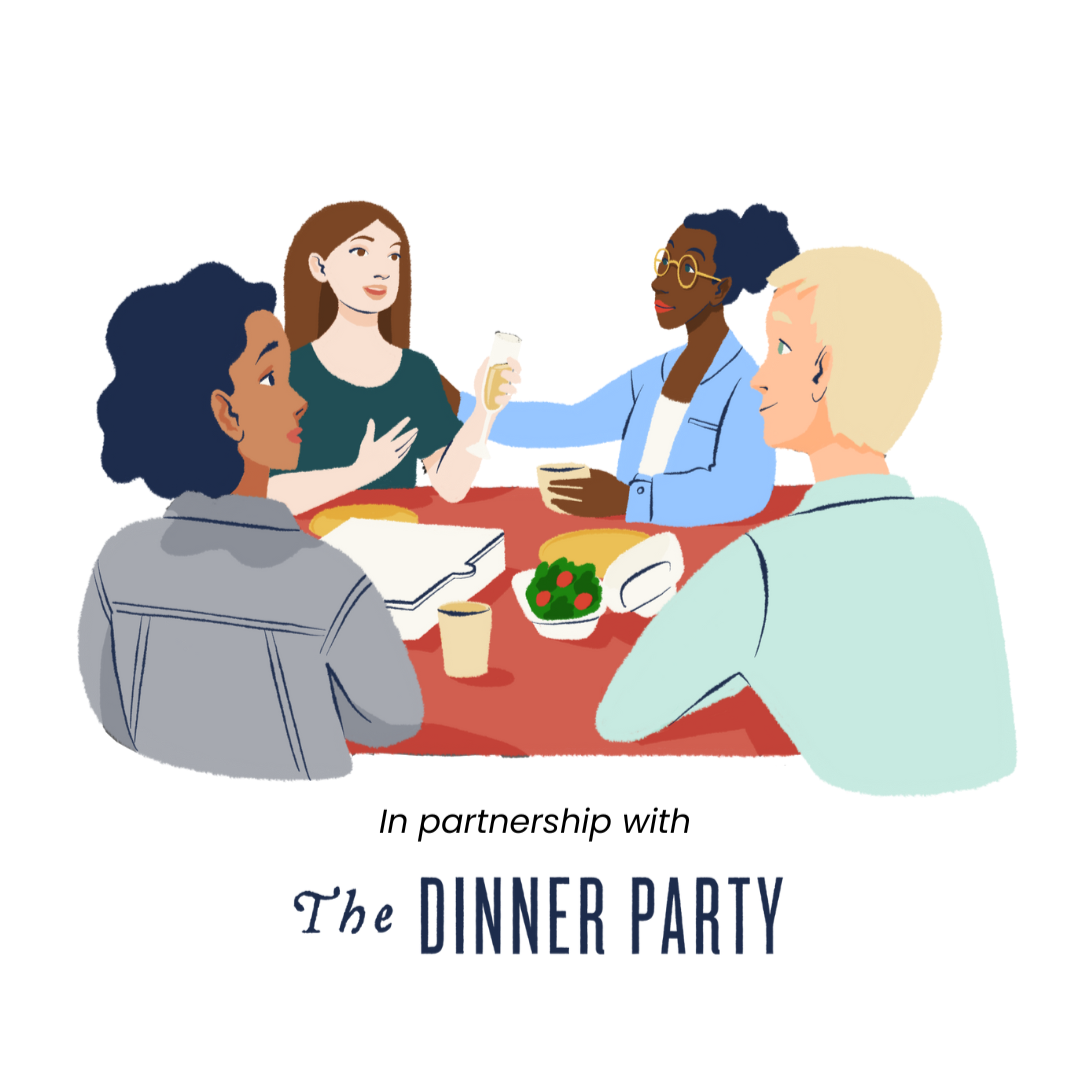
Experiencing Grief?
Grief is a natural response to loss. It can show up as deep sadness, longing, anger, or even numbness, and often impacts both body and mind. Grief may affect sleep, appetite, focus, and energy, and can come in waves—sometimes when least expected. Everyone’s experience of grief is unique, and it does not follow a set timeline. While it can feel heavy and isolating, here are some ways you can begin to navigate it:
Simple Tools to Help You Right Now
In partnership with The Dinner Party -
Join a Dinner Party: Your grief is yours alone, but that doesn’t mean you need to be alone in your grieving. Join a TDP grief group (Table), organized by peer grievers (Hosts) who have been trained by TDP staff. TDP has groups meeting in-person and virtually, including affinity spaces for specific loss experiences and/or identities, plus a 1:1 hand-matching program called The Buddy System. The Dinner Party is specifically for folks 21-45, filling a crucial gap in grief support.
Tools to Support You Long-Term
Self-compassion means treating yourself with the same kindness, patience, and care that you would offer to someone you love. When you're grieving, it’s easy to judge your emotions, question your process, hold on to regret, or feel like you "should" be doing better. But healing doesn’t come from pressure — it begins when you give yourself permission to feel, to rest, and to be exactly where you are. Try Dr. Kristin Neff’s self compassion exercise we recommend here.
Grief often needs space — a gentle pause where you can let emotions rise without judgment. This might mean being alone in a quiet corner, lighting a candle, journaling, or listening to music that helps you release what you’re holding. Sometimes, though, being alone can feel overwhelming. In those moments, let a trusted friend or family member hold that space with you. You don’t need to talk or receive advice — just sitting together, watching a movie, painting, or sharing silence can bring comfort. Whether you’re by yourself or with someone safe, creating intentional space gives grief room to move, and reminds you that you don’t have to carry it alone.
Engaging in creativity—whether it’s writing, painting, making music, or any form of self-expression—can offer a gentle outlet for grief. When words are hard to find, creativity can help you process what you’re feeling. Even baking or cooking can be a powerful creative expression, offering a sense of rhythm, comfort, and care. Try our Gratitude Journaling Art Class here on Jewel Never Broken.
Grief can feel heavy, but connecting with someone who’s been through something similar can help soften the heaviness. Sharing your story, listening to theirs, or simply being together can bring comfort, grounding, and healing.
Small steps to help you feel supported and connected:
- Join a support group - In-person or online, being with others who are also navigating grief can feel deeply validating. Check out The Dinner Party groups here.
- Spend time in safe shared spaces - A library, park, coffee shop, or place of worship can provide comfort simply by being around others, even without conversation.
- Start small with one person - Invite a trusted friend to join you for a walk, play a game, creative activity or to just sit at home together.
- Volunteer or give back (when you are ready) - Helping others can reconnect you with purpose and belonging, while opening space to meet new people and form meaningful connections.
Nature has a quiet, grounding way of supporting us through grief. In its stillness and rhythm, it offers a kind of comfort that words often can’t. Grief can feel heavy, but in the presence of trees, sky, and open space, that weight can begin to shift — even if just a little. Nature doesn’t rush or judge — it simply holds you and allows you space for things to arise.
Find a comfortable spot and take a deep breath.
Look around and name 5 things you can see.
Notice 4 things you can touch or feel.
Listen for 3 things you can hear.
Identify 2 things you can smell.
Finally, note 1 thing you can taste.
Check in with how you feel. Use this anytime you need to feel calm and grounded.
Find an essential oil scent that is soothing. Our recommendations are: peppermint, lavender, eucalyptus, or orange. Open the bottle and lift it up towards your nose, take long inhales and exhales. Breathing with a soothing scent can calm your body and gently bring you back to the present when you feel caught in a heavy wave of grief.
Soothing music can offer gentle comfort when grief feels too heavy for words. It creates space to feel, breathe, and connect to something deeper. Sometimes, music can even help put words to emotions you can’t quite express yourself. Whether it brings tears, calm, or a quiet moment of peace, music can help soften the ache of loss, one note at a time.
“You will conquer whatever you may be going through, just know you don’t have to struggle in silence or go through it alone”

Gentle Reminder
Grief doesn't look the same for everyone. Some days may feel heavy, others lighter, and that’s all part of the process. Try not to judge how your grief shows up — allow it to be what it is, and meet yourself with compassion.


Need Help Now? Call or text 988 or text ‘HOME’ to 741741 for support
If you’d like insight on these mental fitness tools or to connect with someone on the Inspiring Children and #NotAloneChallenge team please fill out our submission form here.

